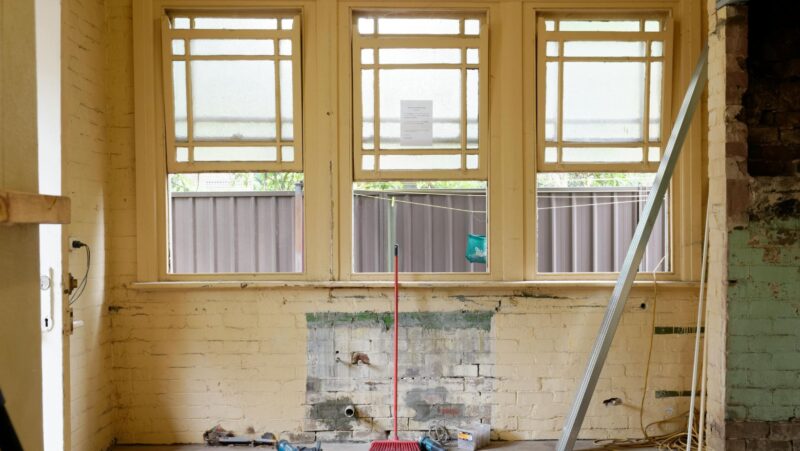Table of Contents
ToggleThe Digital Shift in Real Estate Marketing
The digital shift in real estate marketing has fundamentally changed how both realtors and potential buyers approach the market. Now, it’s remarkably easy to find information about realtors in Augusta, GA, or any other location, thanks to online platforms and social media. This accessibility allows buyers to quickly compare and contrast agents, viewing their listings, client overviews, and marketing strategies, all from the comfort of their home. For realtors, the move to digital provides a broader reach and the ability to connect with clients through more personalized and interactive content. As a result, the digital landscape has become an essential tool in a realtor’s arsenal, enabling them to effectively showcase their expertise and properties, enhancing their visibility, and increasing their chances of closing deals.
Major Social Media Platforms and Their Impact
Major social media platforms like Facebook, Instagram, Twitter, and LinkedIn have a significant impact on real estate marketing, each serving unique purposes. Facebook’s extensive user base and sophisticated targeting options make it a favorite for generating leads and showcasing properties through ads and virtual tours.
Instagram, with its visually driven platform, is ideal for realtors to share high-quality images and videos of listings, attracting visually oriented buyers and creating a strong brand aesthetic. Twitter allows for quick updates and direct engagement with potential clients, providing a platform for realtors to share market insights and available properties in real time. LinkedIn contributes to credibility and professional networking, helping realtors connect with industry peers and potential investors. Overall, these platforms collectively enhance the visibility of real estate offerings, improve customer engagement, and facilitate the building of trust with prospective clients.
Enhancing Visibility with Social Media
Enhancing visibility with social media in real estate marketing is about more than just posting listings; it involves strategic engagement and content optimization. Platforms like Facebook and Instagram offer powerful tools for targeted advertising, allowing realtors to reach specific demographics based on location, interests, and buying behavior. This level of precision not only increases the visibility of properties but also ensures that they are seen by potential buyers who are most likely to be interested. Additionally, consistent and high-quality content, such as virtual tours, customer testimonials, and live Q&A sessions, can significantly boost engagement and help realtors stand out in a crowded market. Moreover, leveraging hashtags, participating in relevant groups, and collaborating with local influencers can further amplify a realtor’s visibility, driving more traffic to their profiles and listings. Realtors can significantly enhance their market presence by effectively utilizing these social media strategies, attracting more leads, and ultimately facilitating faster sales.
Building Trust Through Community Engagement
Building trust through community engagement is a pivotal strategy in real estate marketing, particularly in the era of social media. By actively participating in online community groups and forums, realtors can connect with local residents, answer their questions, and provide expert advice, thereby establishing themselves as trustworthy and knowledgeable figures.

This approach not only fosters a positive reputation but also creates a sense of familiarity and reliability among potential clients. Regular updates about community events, market trends, and homeowner tips further demonstrate a realtor’s commitment to their community beyond just selling homes. Engaging with user comments and feedback on social media posts also enhances transparency and shows that the realtor values client opinions and experiences. Overall, by nurturing these relationships through consistent and meaningful interaction, realtors can build a robust network of trust, which is crucial for long-term success in the real estate industry.
The Role of Video Content in Real Estate
The role of video content in real estate marketing has become increasingly important, offering a dynamic way to showcase properties and engage potential buyers. Videos provide a more comprehensive and immersive view of a property than photos alone, allowing potential buyers to visualize the space and its layout more effectively. This can include virtual tours, which simulate the experience of walking through a home and can be particularly appealing to out-of-town buyers who might not be able to visit in person.
Additionally, video content can be used to highlight the neighborhood and local amenities, giving a fuller picture of the living experience in a particular area. Real estate agents can also leverage video to share their insights on the market, offer home-buying tips, and introduce themselves personally, which helps in building a connection with viewers. Through social media platforms, these videos can be easily shared and reach a wide audience, significantly increasing the visibility of listings and enhancing the agent’s profile as an industry expert.
Social Media Analytics for Strategic Planning
Social media analytics play a crucial role in strategic planning for real estate marketing by providing data-driven insights that can guide decision-making processes. These analytics tools help realtors understand how their content is performing, which types of posts generate the most engagement, and what times their audience is most active. By analyzing metrics such as likes, shares, comments, and view durations, realtors can tailor their content strategies to maximize impact and reach.
Additionally, insights into audience demographics allow for more effective targeting in advertising campaigns, ensuring that marketing efforts are directed toward the people most likely to be interested in buying or selling properties. Tracking conversions from social media ads to actual sales or inquiries can also provide a clear return on investment (ROI), enabling realtors to adjust their budget allocations for maximum efficiency. Overall, social media analytics are indispensable for optimizing marketing strategies, enhancing engagement, and ultimately driving sales in the competitive real estate market.
Future Trends in Social Media and Real Estate
Future trends in social media and real estate are set to further transform how properties are marketed and sold, with innovations aimed at enhancing the buyer’s experience and streamlining the sales process. One notable trend is the increased use of augmented reality (AR) and virtual reality (VR), which allows potential buyers to tour properties remotely in a highly immersive manner. This technology is especially beneficial for top realtors in Georgia who can showcase homes to out-of-state or international buyers without the need for physical travel.

Additionally, the integration of artificial intelligence in social media platforms will enable more personalized content delivery, targeting potential clients with properties that match their specific preferences and behaviors. We can also expect more sophisticated data analytics tools to emerge, providing deeper insights into customer engagement and preferences. These tools will help realtors refine their marketing strategies in real-time, enhancing their ability to connect with the right audience effectively. As these technologies evolve, they will provide a competitive edge to realtors who adopt them early and integrate them into their marketing efforts.
How to Get Started with Social Media Marketing
Getting started with social media marketing in real estate requires a strategic approach to engage potential clients and maximize your online presence effectively. First, choose the right social media platforms that best fit your target audience; for most realtors, platforms like Facebook, Instagram, and LinkedIn are essential due to their large user bases and diverse demographics.
Once you’ve selected your platforms, create a consistent posting schedule to keep your audience engaged and informed about your listings, updates, and real estate advice. It’s also important to develop a content strategy that includes a mix of property showcases, customer testimonials, and informative posts about the buying and selling process to provide value to your followers. Engaging directly with your audience through comments, messages, and live sessions can further enhance your visibility and build trust. Lastly, consider investing in social media advertising to reach a broader audience. These ads can be targeted very specifically to ensure you are reaching potential buyers or sellers in your area.
Conclusion
The influence of social media on real estate marketing strategies is profound and transformative. By leveraging the power of platforms like Facebook, Instagram, and LinkedIn, realtors can enhance visibility, engage with the community, and build trust with potential clients. As the digital landscape continues to evolve, staying ahead of the latest trends and technologies will be crucial for realtors looking to thrive in an increasingly competitive market. Ultimately, a well-executed social media strategy can significantly increase leads, conversions, and sales in real estate.





